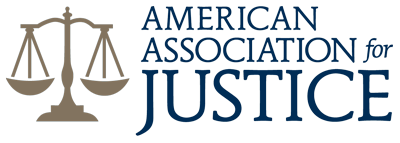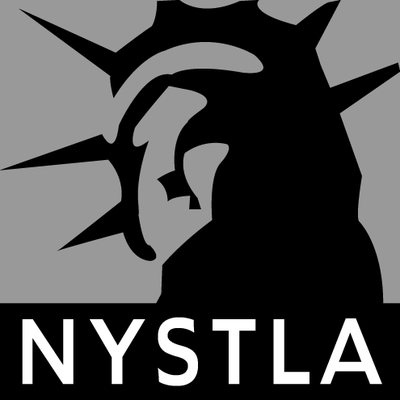The decision to place a loved one in a nursing home is never easy. It is often accompanied by a mixture of emotions ranging from guilt to relief, knowing that they will receive care and attention that may no longer be manageable at home. Families trust that these facilities will provide a safe and nurturing environment for their elderly members. Unfortunately, this trust can sometimes be misplaced. Nursing home neglect is a significant issue in New York State, with many vulnerable seniors suffering due to inadequate care, mistreatment, or neglect. Understanding the complexities of nursing home neglect, recognizing the signs, and knowing the legal options available in New York State are crucial steps for families who suspect their loved ones are being mistreated.
Understanding Nursing Home Neglect
Nursing home neglect refers to the failure of a nursing home or its staff to provide the standard of care that a resident requires. Unlike abuse, which involves intentional harm, neglect is often characterized by a lack of action or the omission of necessary care. However, the effects of neglect can be just as devastating as abuse, leading to physical, emotional, and psychological harm. It is essential to differentiate between the different forms of neglect that can occur in nursing homes.
Neglect can manifest in various ways, including medical neglect, which occurs when a resident does not receive proper medical attention. This can involve failing to administer medications, not addressing health issues in a timely manner, or neglecting to follow through with treatment plans. Another form of neglect is personal hygiene neglect, where residents are not provided with assistance in maintaining their hygiene, leading to issues such as bedsores, infections, or general discomfort. Emotional neglect is another critical area where residents may be isolated, ignored, or emotionally abandoned by staff, leading to feelings of loneliness, depression, and anxiety.
Nursing home neglect can occur for various reasons. Staffing issues are a common cause, with many facilities being understaffed or staffed with inadequately trained personnel. This lack of resources can lead to overworked caregivers who are unable to provide the level of care required for each resident. Additionally, poor management and oversight within the facility can contribute to an environment where neglect is more likely to occur. Regardless of the cause, it is the responsibility of the nursing home to ensure that residents receive the care they need.
Recognizing the Signs of Nursing Home Neglect
Recognizing the signs of nursing home neglect can be challenging, especially if the neglect is subtle or if the resident is unable to communicate effectively due to cognitive impairments. However, being vigilant and observant can help families identify potential issues before they escalate. Physical signs of neglect may include unexplained weight loss, dehydration, or malnutrition, which can indicate that the resident is not receiving adequate food or fluids. Bedsores, particularly in immobile residents, are another red flag, as they can develop when a person is not regularly repositioned.
Changes in behavior can also be indicative of neglect. If a resident becomes withdrawn, exhibits signs of depression, or expresses fear or anxiety about specific staff members, these could be signs of emotional neglect or even abuse. A lack of cleanliness, both in the resident’s appearance and in their living environment, may suggest that hygiene needs are not being met. Additionally, if medications are missing or not administered correctly, this could point to medical neglect.
It is also essential to pay attention to the condition of the nursing home itself. A facility that appears dirty, poorly maintained, or disorganized may indicate broader issues that could affect the quality of care provided. If staff members seem overworked, inattentive, or dismissive of residents’ needs, these are further signs that the facility may not be providing the level of care that is required.
The team is very personable, patient and empathetic with their clients. They are upfront with you and will explain the entire process with you, they never lead you to believe otherwise, they tell you like it is and will not sell you a million dollar dream. Trust in Andrews, Bernstein & Maranto, PLLC, they work for you and he looks out for your best interest.” - Jane D.
Legal Framework for Nursing Home Neglect in New York State
In New York State, nursing homes are regulated by both federal and state laws designed to protect residents’ rights and ensure that they receive adequate care. The Federal Nursing Home Reform Act, part of the Omnibus Budget Reconciliation Act of 1987, establishes a set of standards for nursing home care nationwide. This includes the right to be free from abuse and neglect, the right to privacy, and the right to receive proper medical care.
At the state level, New York’s Public Health Law provides additional protections for nursing home residents. This law requires nursing homes to maintain a standard of care that meets the needs of each resident, including medical care, personal hygiene, and emotional well-being. Failure to meet these standards can result in legal action against the facility.
Families who suspect nursing home neglect have several legal options in New York State. One of the first steps is to file a complaint with the New York State Department of Health, which oversees nursing homes and investigates reports of neglect and abuse. The department can conduct inspections, impose fines, and take other actions against facilities that fail to meet the required standards.
In addition to filing a complaint with the state, families may also pursue legal action against the nursing home. This can involve filing a civil lawsuit for damages resulting from the neglect. In some cases, criminal charges may also be brought against individuals responsible for the neglect. It is crucial for families to understand that they have the right to seek justice and hold nursing homes accountable for failing to provide the necessary care to their loved ones.
Should I Take The First Settlement Offer? Steps to File a Personal Injury ClaimRelated Videos
Steps to Take if You Suspect Nursing Home Neglect
If you suspect that your loved one is a victim of nursing home neglect, it is important to take immediate action to protect their well-being. The first step is to speak with your loved one, if possible, and ask them about their experiences in the nursing home. Be supportive and understanding, as they may be reluctant to discuss the situation due to fear of retaliation or embarrassment.
Documenting any signs of neglect is also critical. Take photographs of any injuries, bedsores, or unsanitary conditions, and keep a detailed record of any changes in your loved one’s health or behavior. If possible, gather statements from other residents or family members who may have witnessed neglect.
Contacting the nursing home administration is another important step. Express your concerns and request an explanation for any issues you have observed. In some cases, the administration may not be aware of the neglect and may take corrective action to address the situation. However, if you do not receive a satisfactory response, it may be necessary to escalate the matter.
Filing a complaint with the New York State Department of Health is an essential step in holding the nursing home accountable. The department will investigate the complaint and take appropriate action if necessary. Additionally, consider consulting with an attorney who is knowledgeable in nursing home neglect cases. They can provide guidance on the legal options available to you and help you navigate the process of filing a lawsuit if needed.
Verdicts & Settlements
The Role of Family Members in Preventing Nursing Home Neglect
Family members play a crucial role in preventing nursing home neglect. Regular visits to the nursing home can help you monitor your loved one’s care and identify any potential issues early on. During visits, take the time to observe the interactions between staff and residents, and pay attention to any changes in your loved one’s physical or emotional state.
Establishing a good relationship with the nursing home staff can also be beneficial. When staff members know that a resident has involved and attentive family members, they may be more likely to provide the necessary care and attention. However, it is important to remain vigilant and not assume that everything is fine based on appearances alone.
Encouraging open communication with your loved one is essential. Let them know that they can talk to you about any concerns or issues they may have, and reassure them that they will not face any negative consequences for speaking out. If your loved one is unable to communicate effectively, be sure to observe their behavior and look for any signs of distress.
It is also important to educate yourself about the rights of nursing home residents and the standards of care that facilities are required to meet. By understanding these rights, you can better advocate for your loved one and ensure that they receive the care they deserve.
Pursuing Justice for Victims of Nursing Home Neglect
When nursing home neglect occurs, it is not only a violation of trust but also a breach of the legal responsibilities that nursing homes have toward their residents. Pursuing justice for victims of nursing home neglect is essential not only for holding the responsible parties accountable but also for preventing similar situations from occurring in the future.
Filing a lawsuit against a nursing home for neglect can be a complex process. It involves gathering evidence, interviewing witnesses, and navigating the legal system. However, with the right legal representation, families can seek compensation for the harm caused to their loved ones and ensure that the nursing home is held accountable for its actions.
Compensation in nursing home neglect cases can cover a range of damages, including medical expenses, pain and suffering, and emotional distress. In some cases, punitive damages may also be awarded if the neglect was particularly egregious. While no amount of money can undo the harm caused by neglect, it can provide some measure of justice and help cover the costs of additional care or medical treatment that may be required.
It is important to act quickly if you suspect nursing home neglect, as there are time limits for filing a lawsuit. In New York State, the statute of limitations for nursing home neglect cases is generally three years from the date of the incident. However, there are exceptions to this rule, so it is important to consult with an attorney as soon as possible to ensure that your case is filed within the required timeframe.
If you suspect that your loved one is a victim of nursing home neglect in New York State, it is crucial to take action to protect their well-being and hold the responsible parties accountable. The legal team at Andrews, Bernstein & Maranto, PLLC is here to help you navigate this difficult situation. Our compassionate and experienced attorneys are dedicated to advocating for the rights of nursing home residents and ensuring that they receive the care and respect they deserve. Contact us today to discuss your case and explore your legal options.












